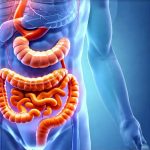Bloating is an incredibly common digestive complaint, impacting millions worldwide. It’s often dismissed as a minor inconvenience, but for many, it can be debilitating, causing significant discomfort and affecting quality of life. While dietary factors frequently take the blame – and rightly so to some extent – focusing solely on what we eat overlooks a crucial component of healthy digestion: gut motility, or how effectively our digestive system moves food along its path. Understanding this movement, and how it can be optimized, is key to preventing that uncomfortable, distended feeling many associate with bloating.
The digestive process isn’t just about breaking down food; it’s about moving it through the system at a healthy pace. When things slow down – or become erratic – waste products linger longer than they should, providing more opportunity for fermentation and gas production by gut bacteria. This leads to increased pressure within the intestines, manifesting as bloating, abdominal pain, and changes in bowel habits. Conversely, overly rapid movement can sometimes lead to incomplete digestion, also contributing to discomfort. It’s a delicate balance, and maintaining it requires attention to various lifestyle factors beyond just food choices. Understanding how gut biofeedback can help is beneficial for some individuals.
The Mechanics of Gut Motility
Gut motility refers to the coordinated contractions of muscles within the digestive tract that propel food from the esophagus to the anus. This isn’t simply a one-way push; it involves complex patterns of peristalsis – wave-like muscle contractions – and segmentation, where the intestines contract in sections to mix and churn the contents. These movements are regulated by a network of nerves known as the enteric nervous system, often called the “second brain,” which operates independently but communicates with the central nervous system. The speed and strength of these contractions can be influenced by numerous factors including diet, hydration levels, stress, physical activity, and even sleep quality.
A healthy gut exhibits consistent, rhythmic motility. When this rhythm is disrupted – either too fast or too slow – it creates an environment ripe for bloating. Slowed motility allows bacteria to feast on undigested food particles, producing excess gas. Rapid motility can lead to malabsorption of nutrients and increased intestinal permeability (often referred to as “leaky gut”), which contributes to inflammation and discomfort. Identifying the specific type of motility issue is often difficult without professional assessment, but recognizing common symptoms can offer clues. The role gastric emptying also plays a part in this process.
It’s important to remember that some level of gas production is normal during digestion. However, excessive gas build-up coupled with abdominal distension is what constitutes bloating. The key isn’t necessarily eliminating gas altogether, but rather managing the process so it doesn’t become painful or disruptive. Often, addressing gut motility can significantly reduce this uncomfortable experience. Keeping well-hydrated is also crucial for healthy digestion.
Factors Disrupting Gut Motility
Several common factors can throw off the delicate balance of gut motility, leading to bloating and digestive distress. One prominent culprit is dietary habits, specifically a lack of fiber intake. Fiber acts like a broom for the digestive system, adding bulk to stool and promoting regular contractions. Conversely, diets high in processed foods, sugar, and unhealthy fats can slow down digestion and contribute to inflammation, further hindering motility. Hydration also plays a critical role; insufficient water intake leads to harder stools that are more difficult to move through the intestines.
Beyond diet, stress is a significant disruptor of gut motility. When we experience stress, our bodies activate the sympathetic nervous system – the “fight or flight” response – which can suppress digestive function and slow down peristalsis. Chronic stress can lead to long-term disruptions in gut motility and increase susceptibility to bloating. Similarly, lack of physical activity contributes to sluggish digestion. Movement stimulates muscle contractions throughout the body, including those within the intestines. A sedentary lifestyle often results in decreased motility and increased risk of constipation and bloating.
Finally, certain medications – such as opioids, anticholinergics, and some antidepressants – can have significant side effects on gut motility. It’s crucial to discuss potential digestive impacts with your healthcare provider when starting any new medication. Identifying and addressing these contributing factors is the first step towards restoring healthy gut motility and reducing bloating. For those following a vegan diet, understanding enzyme deficiency can be helpful.
Strategies for Improving Gut Motility
Fortunately, there are many proactive steps you can take to improve gut motility and prevent bloating. Increasing fiber intake is a cornerstone of this approach. Aim for at least 25-30 grams of fiber per day from sources like fruits, vegetables, whole grains, legumes, and nuts. However, increase fiber gradually to avoid exacerbating symptoms; adding too much fiber too quickly can actually worsen bloating initially. Alongside fiber, ensuring adequate hydration is essential. Drink plenty of water throughout the day – typically 8 glasses or more – to keep stools soft and facilitate movement through the digestive tract.
Regular physical activity is also incredibly beneficial. Even moderate exercise, such as walking for 30 minutes most days of the week, can stimulate gut motility and reduce bloating. Incorporating stress-management techniques like yoga, meditation, or deep breathing exercises can help counteract the negative effects of stress on digestion. Consider incorporating probiotic-rich foods into your diet – yogurt, kefir, sauerkraut, kimchi – to support a healthy gut microbiome, which plays a vital role in regulating motility. A diverse gut microbiome is essential for optimal digestion.
The Role of Magnesium and Gut Movement
Magnesium is an often-overlooked nutrient that plays a surprisingly significant role in gut health and motility. It’s involved in over 300 enzymatic reactions within the body, including those related to muscle contraction. Specifically, magnesium helps regulate the contractions of intestinal muscles, promoting healthy peristalsis. Many people are deficient in magnesium – due to factors like poor diet, stress, and certain medications – which can contribute to slowed gut motility and constipation.
Increasing your magnesium intake through diet is a great starting point. Foods rich in magnesium include leafy green vegetables (spinach, kale), nuts and seeds (almonds, pumpkin seeds), legumes, dark chocolate, and whole grains. However, for some individuals, supplementation may be necessary to address significant deficiencies. Different forms of magnesium exist – citrate, oxide, glycinate – with varying levels of absorption and potential side effects. Magnesium citrate is often preferred due to its higher bioavailability and mild laxative effect, which can further aid gut motility (but should be used cautiously if you’re already prone to diarrhea).
It’s important to note that magnesium supplementation isn’t a one-size-fits-all solution. It’s always best to discuss with your healthcare provider before starting any new supplement regimen, especially if you have underlying health conditions or are taking other medications. Excessive magnesium intake can cause diarrhea and other adverse effects. The goal is to find the right balance that supports healthy gut motility without causing unwanted side effects. Considering liver detox may also support overall digestive health.


















